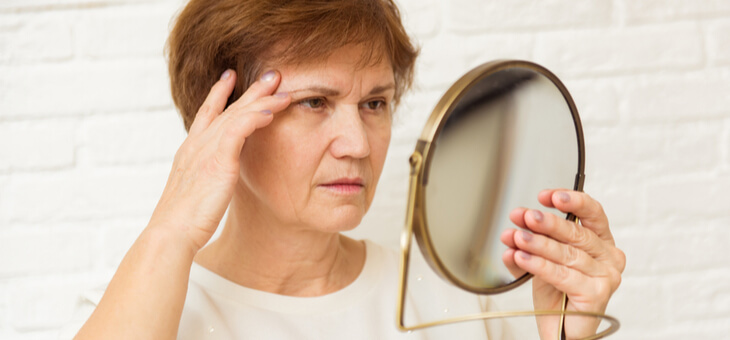There’s nothing fun about the ageing process, which seems to happen in the blink of an eye. But could you be doing things that speed the process up? Research suggests you just may be.
As we age, nearly all our body’s internal processes slow down and take longer to complete or recover. This includes everything from skin cell turnover to how long it takes to bounce back after a workout.
This leaves room for signs of the ageing process to creep in. These changes can be surprising and upsetting if they happen earlier than expected. It’s not possible to avoid these changes completely, but there are ways to slow the process down.
These are the main behaviours to avoid if you’re looking to slow the signs of ageing, or even reverse them.
Read: What is retinol? Is it anti-ageing’s gold standard for skincare?
Sleeping on your side
This may come as a bit of a shock, as most adults sleep on their side at least for some of the night. But lying for long periods on either side of your body can produce wrinkles on your face, with one study finding that the compression to the face during sleep causes facial distortions, leading to the formation of wrinkles over time.
Not using sunscreen
This one might seem obvious, but being overexposed to the ultraviolet rays of the sun can increase the ageing rate by as much as 80 per cent. Too much sun exposure will leave your face showing marked signs such as wrinkling, dryness, sagging, and spotty pigmentation.
Australian researchers followed more than 900 participants for four years, tracking their rates of sunscreen use, including reapplying sunscreen after being outside for a few hours, after going in the water or after sweating heavily.
They found that those who had used sunscreen regularly (as in every time they went outside) were 24 per cent less likely to show increased signs of ageing.
Read: Omega-3 supplements may slow cellular ageing
Consuming too much sugar
Most people know eating too much sugar has a number of negative health effects. But did you realise it also contributes to making you look older?
The process is called glycation and is caused by an excess of glucose combined with the collagen and elastin fibres in your skin.
This sets off a chemical reaction that forms destructive molecules called Advanced Glycation End Products (AGEs). Glucose overlaps around the collagen and elastin fibres and with time they become rigid and can even break and lose their activity. With age, the AGE molecules accumulate and end up destroying the support cushion of the skin formed by elastin and collagen.
Not getting enough sleep
It’s recommended that adults get at least seven hours sleep per night. But among older adults, getting enough sleep is even more important.
One study found that even a single night of insufficient sleep can actually make individual cells of the body age much quicker.
Read: Science uncovers foods that fight ageing and improve brain health
Overexposure to electronic devices
Similar to soaking up too much sunlight, a common problem in today’s world is how much we’re exposed to light from our electronic devices. High energy visible (HEV) light from electronics has the ability to penetrate deeper into your skin and ultimately lead to premature ageing.
Dermatologists have found that spending four eight-hour workdays in front of a computer exposes you to the same amount of energy as 20 minutes in the midday sun.
Over time this exposure to electronic devices combined with daily exposure from the sun can speed up the ageing process.
If you enjoy our content, don’t keep it to yourself. Share our free eNews with your friends and encourage them to sign up.

